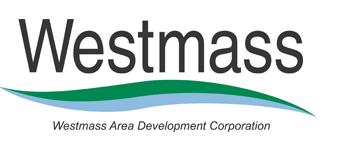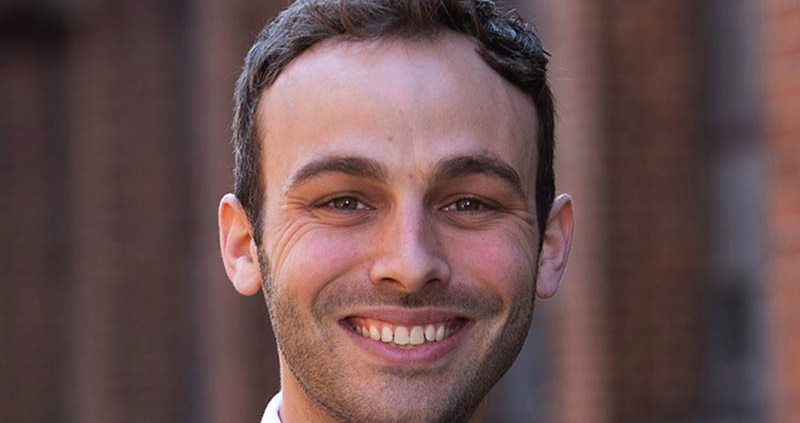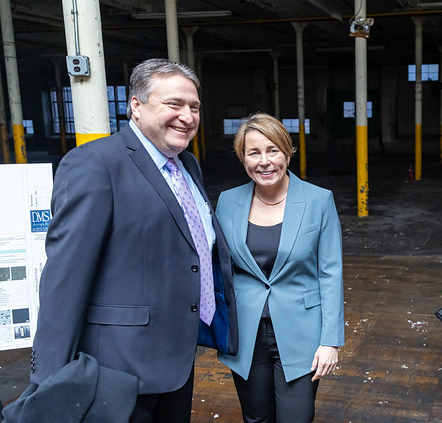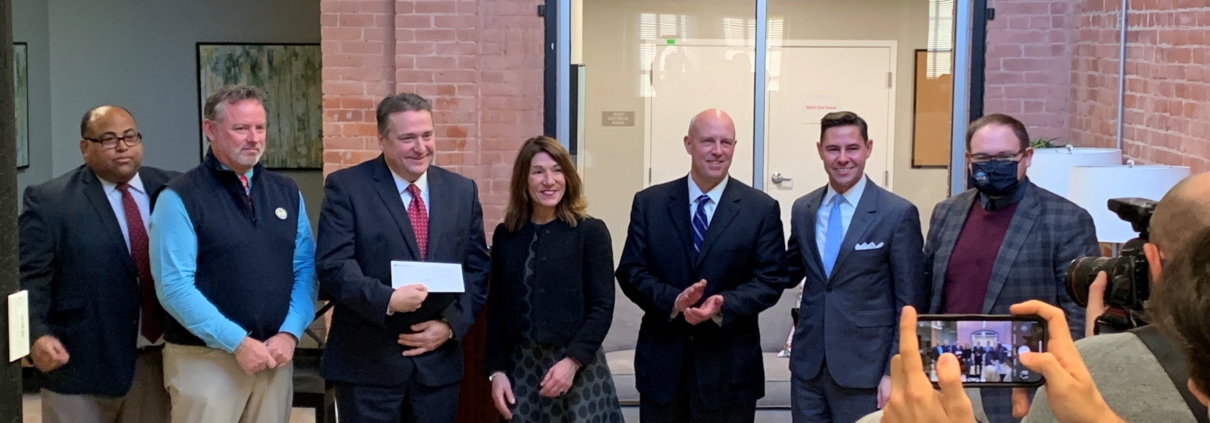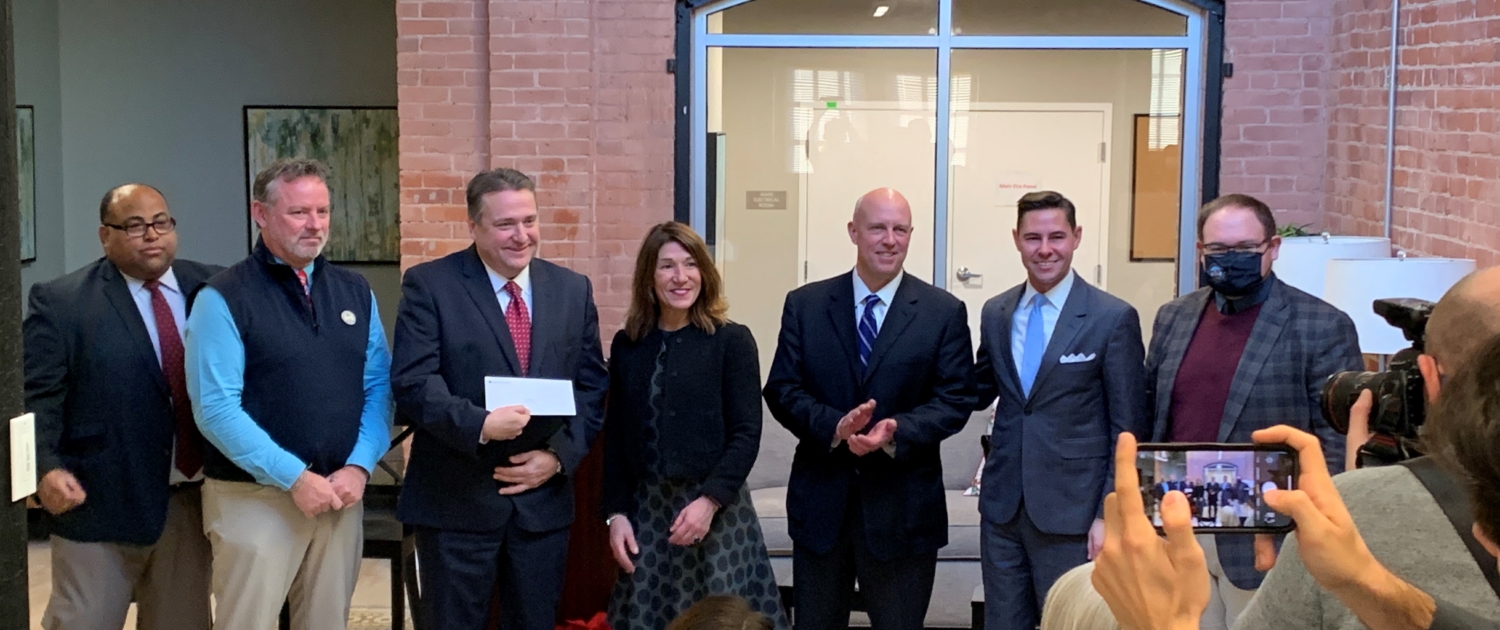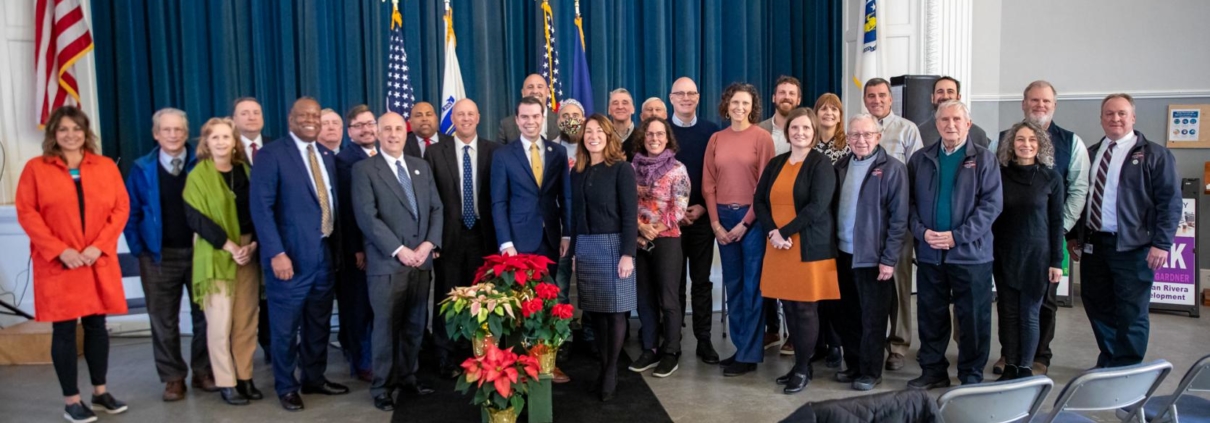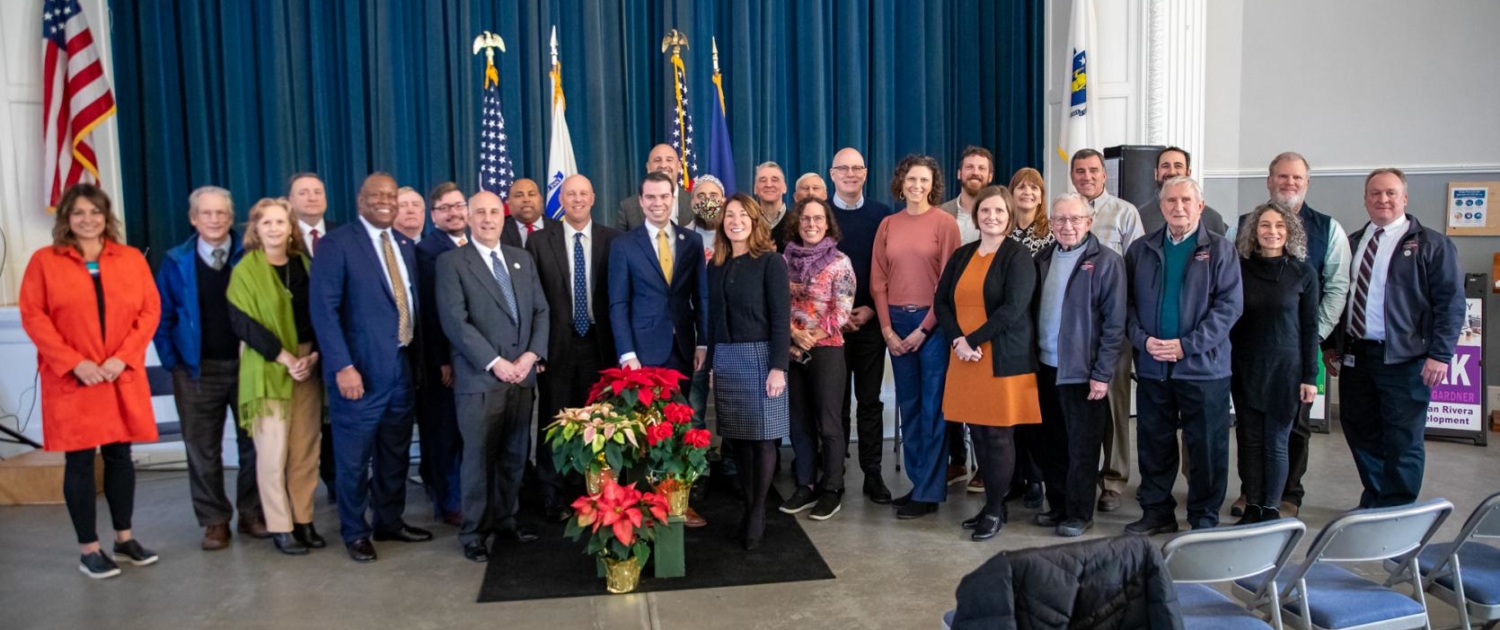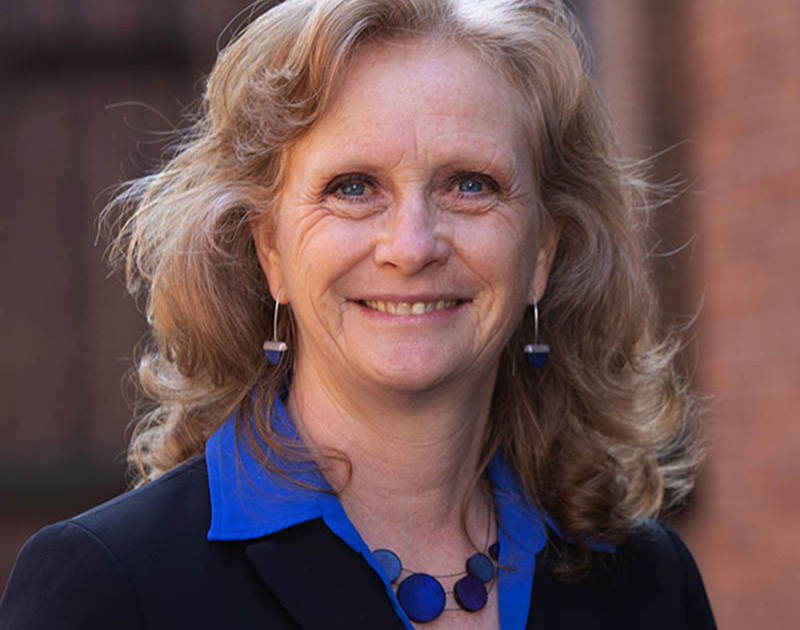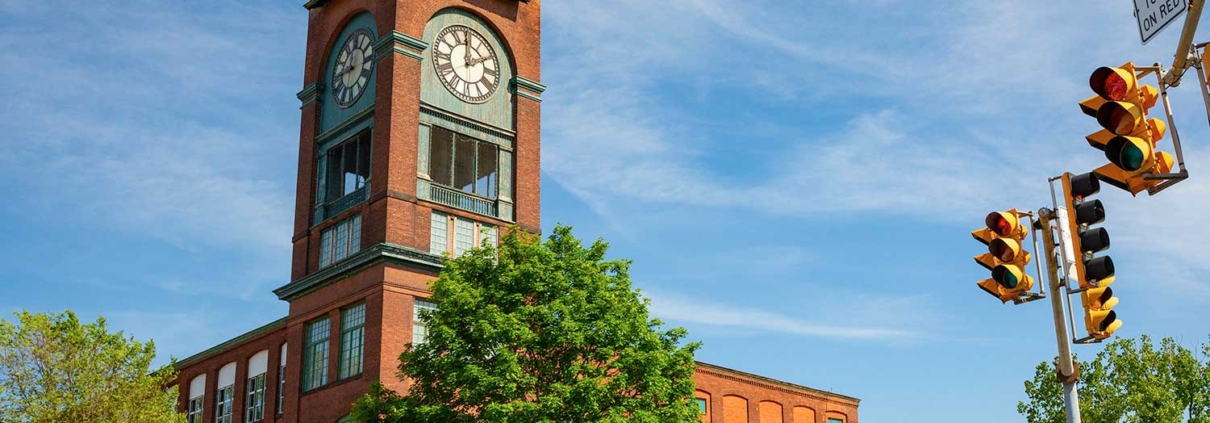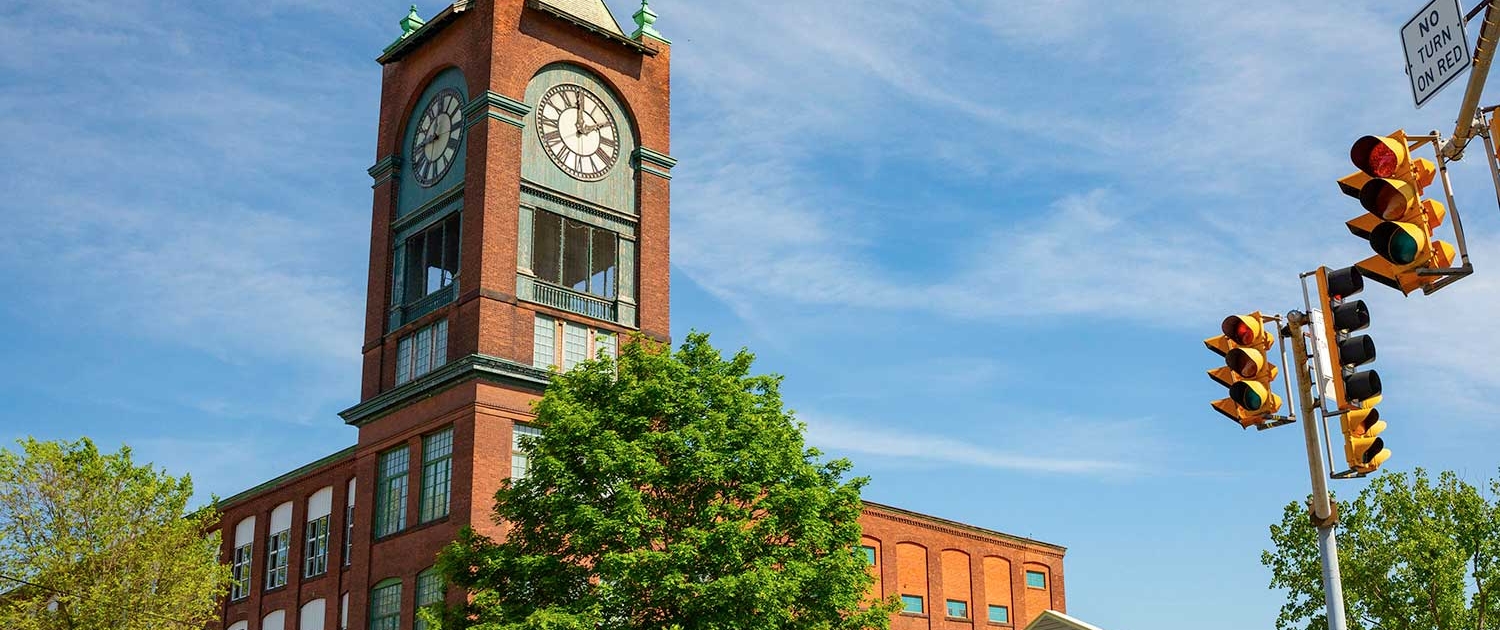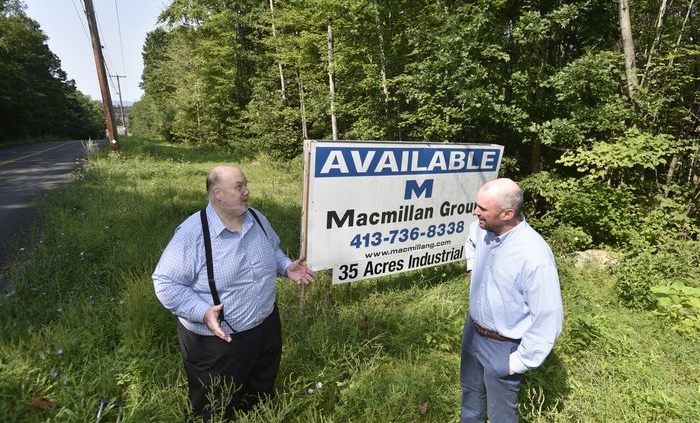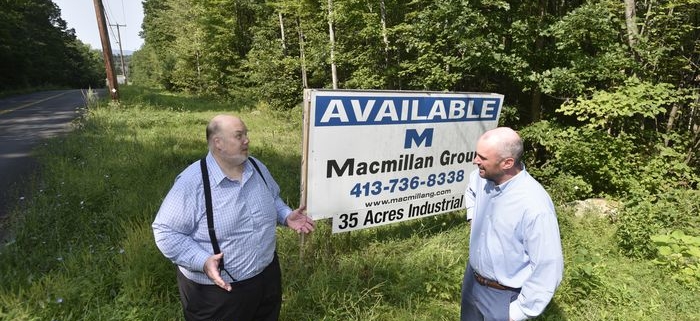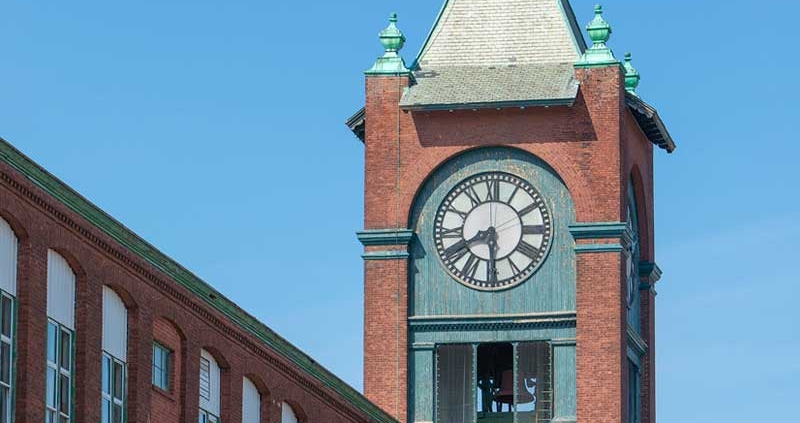BusinessWest (September 29, 2021)
Putting the Pieces Together
It’s called a ‘hyper-scale data center.’ That’s the name attached to a $2.7 billion proposal planned for a 155-acre parcel in Westfield. The complicated project, now entering the local-approval phase, has cleared perhaps the biggest hurdle — the aggregation of a site that can check a unique set of boxes, including accessibility to huge amounts of power and data. If it comes to fruition — and there are still many challenges to overcome — the project could make the region a player in the emerging sector known as Big Data.
Demetrios Panteleakis says he spent a good part of the winter, spring, and some of the summer walking through all 150 acres of mostly raw land in the northwest corner of Westfield.
“I probably know every inch of it by now,” Panteleakis, the principal commercial broker with Springfield-based Macmillan Group, who was charged with assembling the parcel, told BusinessWest, adding that he’s been through it in every type of weather imaginable. “I think my family thought I had gotten into hiking and the outdoors.”
These walks in the woods — and wetlands — were a necessary part of a complicated process to aggregate land for what could be the largest private development the region has ever seen and one of the largest initiatives of its kind anywhere — a $2.7 billion proposal to build a massive data center (a ‘hyper-scale data center,’ as it’s called) that will attract the likes of Amazon, Google, and Facebook.
Plans call for constructing 10 buildings totaling 2.7 million square feet over the next 12 to 18 years, said Erik Bartone, CEO of Servistar Realty, the project’s developer. He told BusinessWest he hopes to obtain local approvals by the end of the year and state approvals by mid-2022, and break ground in 2023.
It’s a daring project, one that comes complete with all kinds of large numbers and adjectives (like hyper-scale) that connote size and scope affixed to everything from acreage to the projected cost of the initiative to the number of landowners with which Panteleakis and the Servistar had to negotiate.
That last number would be 11, just one indicator of the level of complexity involved with getting just this far, said Panteleakis, adding that finding a location and assembling the land are perhaps the biggest hurdle for a project that will face many of them — everything from required approvals for a tax-incentive plan to steps to protect endangered species, such as the eastern box turtle.
As for securing a site … a project of this nature and scope requires that a number of unique boxes be checked, said Panteleakis. These include the ability to draw power, and large amounts of it, straight from the grid — two recently upgraded 115 kV high-transmission lines run through the center of the site — as well as access to a reliable, high-speed fiber communications network. Competitive cost of doing business is also high on the list, as is a skilled workforce and easy access to major markets.
“Finding the right location in New England for a hyper-scale data-center development is difficult.”
When all is said and done, it certainly isn’t easy to find a parcel — or parcels that can be aggregated — that can check all those boxes.
“Finding the right location in New England for a hyper-scale data-center development is difficult,” Bartone said. “Access to the electric transmission grid, robust fiber communication network, sufficient land, and the ability to develop the project in an environmentally responsible manner are all very important issues that must be fully evaluated before proceeding with a particular location.”
As noted, the proposal still has many hurdles to clear, but it’s not too early to speculate on what this could mean for the city and the region.
Rick Sullivan, who can speak about the project from a number of perspectives — he’s president and CEO of the Western Mass. Economic Development Council, but also former mayor of Westfield and a current city councilor — said it represents an opportunity to show what the region can do for the emerging sector known as Big Data — and perhaps do more of.
Rick Sullivan says the Westfield data-center project, if it becomes reality, could open the door to new opportunities in the realm known as Big Data.
“This is somewhat of a new sector for us, so I think there’s an opportunity to get attention,” he explained. “Sometimes, getting that first development in a sector is the hardest thing, and then, once that happens, the others do take notice.”
Jeff Daley, president and CEO of WestMass Area Development Corp., which has been hired as a consultant on the Westfield project, agreed.
“It’s an exciting project — this is a game changer,” he said. “If we get this project across the goal line, it opens up an entire industry; we would have the potential to bring other data centers here.”
As for Panteleakis, the data-center project represents another bullet point on a résumé complete with a number of big projects with complicated logistics, something he’s becoming known for within the development industry.
Indeed, when he was not walking the Westfield property and negotiating with all those owners, he was flying to Miami to put the final touches on a massive, $1 billion project that combines residential living with transportation, retail, and office space.
“This is somewhat of a new sector for us, so I think there’s an opportunity to get attention. Sometimes, getting that first development in a sector is the hardest thing, and then, once that happens, the others do take notice.”
The two projects offered a number of different challenges, with COVID presenting new and different issues to contend with, he said, adding that they epitomize what has come to be one of his trademark talents — putting the many pieces together on complicated real-estate puzzles.
For this issue, BusinessWest takes an in-depth look at how this complicated Westfield project came together and how this initiative could change the landscape — in all kinds of ways.
Big Bytes
Panteleakis told BusinessWest that, on many of his flights to and from Florida, he didn’t have much company on the airplane.
“I was on a 747 out of Boston — because you couldn’t fly out of Bradley to Florida — that had two other people on it,” he said. “It was weird. Logan was a ghost town, Miami International was a ghost town; it was very strange.”
That was how things were as he was working on two massive projects on opposite ends of the Atlantic seaboard.
The Miami initiative was a complicated matter of putting the pieces together for a project called Virgin MiamiCentral, a nine-acre living center in the heart of the city that includes 3 million square feet of commercial, office, and retail space, capped with twin residential towers, each more than 40 stories high, sitting atop a train station and retail hub.
Jeff Daley says the data-center project could be a game changer for the region.
Meanwhile, what is now known as the Westfield data-center campus became a very complicated matter of aggregating property that could meet all those unique requirements listed earlier.
In most all cases, the land required for such projects doesn’t come in one parcel, but several of them, which means negotiations on acquiring options — as in quiet negotiations — have to take place with a number of parties simultaneously.
Panteleakis, who compared it to cutting the Gordian knot, tried to put it in perspective for BusinessWest.
“We worked with about four or five different brokers in Western Mass. who represented some of the 11 owners, which at times made things easier, but a predominance of the owners self-represented,” he explained. “And that included people who had ongoing businesses, and it was very arduous and long and, of course, highly confidential.
“It was heavy lifting,” he went on, “and to see it at this stage is very gratifying.”
Overall, it took roughly 14 months to put the parcel in place to the point where the developer could move forward, he said, adding that the site, while challenged by wetlands and environmental issues, provides the size, location, and direct access to the grid needed by Servistar and its eventual clients.
“There’s currently nothing of this scale in the region due primarily to very high retail electricity costs, high property taxes, and significant regulatory challenges.”
The company has a considerable amount of experience with such projects, said Bartone, adding that Servistar has been in the electricity-procurement and energy- management business for 30 years, supporting large-scale commercial and industrial clients, including data and IT service clients.
“Our firm has provided advisory services to several data-center clients, including the management and procurement of their wholesale electricity requirements,” he told BusinessWest, adding that the company currently represents a hyper-scale data-center client that is looking to enter the New England market once local approvals are obtained for the Westfield project.
Elaborating, he said there are several smaller-edge data centers in New England, including in the Boston area, but there are currently no hyper-scale data centers in New England, and for several reasons.
“There’s currently nothing of this scale in the region due primarily to very high retail electricity costs, high property taxes, and significant regulatory challenges,” he explained. “Our firm specializes in the wholesale electricity-procurement markets along with the integration of innovative load-management strategies to proactively reduce the electricity costs for data centers and large power users.
“This is a key cost driver for the industry and critical to making the hyper-scale data-center project feasible,” he went on. “Electricity expenditures typically represent 50% to 60% of the operating costs of a data center. Property taxes typically represent 10% to 15% of operating expenses. These two operating cost components, along with local regulatory approvals, are the primary drivers to locate hyper-scale data centers to New England.”
Bartone said Servistar reviewed numerous sites in Connecticut, Rhode Island, and Massachusetts before focusing on Westfield, a community that emerged in this search roughly 18 months ago.
“We identified various parcels in the city’s industrial zones that met the requirements for the site, but the area is challenging to develop due to wetlands and endangered species, including the eastern box turtle,” he noted. “So we needed a substantial amount of land that would support the 10 data-center building development while also allowing us to minimize environmental impacts.”
Beyond meeting the energy, fiber, and property-tax requirements, the site is also centrally located between Boston, New York City, Providence, Albany, and Hartford, said Bartone, thus providing access to more than 34 million people in the Greater New York metropolitan area and New England. It is also in close proximity to the Westfield-Barnes regional airport with corporate service, only 20 miles from Bradley International Airport, and approximately 100 miles from Logan International Airport.
“Boston also has a high-tech, information-based economy that is an attractive market for corporate offices of companies locating to Westfield for their IT services,” he said, adding that this concentration of trained tech workers was still another selling point.
Powerful Statement
As he talked about the project and its prospects for becoming reality, Sullivan turned to the often-used analogy of getting over the goal line.
He said this project isn’t in the proverbial red zone yet, but it is certainly past midfield and making steady progress.
“There’s still a long way to go, but once they have options on the property and they’re doing work around wetlands and having discussions with the electricity suppliers, you’re past midfield, but you’re not home yet,” he explained. “I don’t think you can have a higher, better use of that property.”
Daley said the next important step is approval of what’s known as a 121A, or PILOT (payment in lieu of taxes) property-tax agreement that locks in the assessed value of the property, with built-in annual increases in property-tax payments. Westfield officials have said the project would bring in $1.2 million in tax payments within three years, making the campus the largest taxpayer in the city.
A joint public hearing between the Planning Board and City Council on the proposed agreement is slated for early October, said Daley, adding that there are other approvals, on both the local and state levels, that must be secured in the coming months.
“We’re hoping to have all local permits in hand by the end of the year,” he explained. “Shortly thereafter, we’d begin work on designs and infrastructure; it would be about 18 to 24 months from go date to being operational.”
Meanwhile, speculation continues about what this project could mean for Westfield and the region. That discussion takes place on many levels, starting with immediate, tangible benefits.
That list includes 1,800 construction jobs, 1,200 indirect jobs that will result from creation of the center, and what is projected to be 400 jobs that will pay between $85,000 to $100,000 at the entry level.
“When people in economic development talk about job creation, these are the kinds of jobs that you’re looking to create,” Sullivan said. “These employees will live in our communities, they’ll invest in our communities, they’ll shop in our communities, and they’ll support the charities in our communities, as will the companies.”
There’s also the tax revenue; Servistar has negotiated a 40-year property-tax agreement with the city that is expected to produce more than $350 million in direct property-tax payments over the term of that agreement.
Beyond these direct benefits, though, is that opportunity Sullivan and Daley mentioned for the region to not only get in the game when it comes to Big Data, but become a player in that sector, which would appear to have almost unlimited potential.
“If you look in the crystal ball, this is a sector that’s only going to grow,” Sullivan said. “And of you overlay data storage and data transmission and all the issues that are somewhat related, such as cybersecurity and other Big Data, I think there’s a real opportunity for us in Western Massachusetts to grow and in some ways lead, if you will, in this sector.
“We have out colleges, especially Bay Path and the University of Massachusetts, that are doing a lot of cutting-edge work in cybersecurity and Big Data, and others will certainly follow,” he went on. “And this will help train a workforce, which is always significant as these companies look to grow.”
As for some of those other boxes that need to be checked, Sullivan acknowledged that the cost of doing business in this state is not as low as in some other areas of the Northeast, but Western Mass. is certainly more cost-friendly that Boston and other metropolitan areas. “Developing in New England may not be the cheapest, but we’re still competitive.”
Bottom Line
Panteleakis — who, as noted, has been involved in large development projects in many areas of the country — said the Westfield data-center campus project represents the type of development that all regions are striving for.
“I’ve done a lot of work in Florida and Texas, and this is how they drive economic development for the 21st century in their areas; they’re focusing on new sectors and technologies,” he explained. “This project will have a tremendous impact on quality of life in Westfield and across the region. It will have a very broad impact.”
As those we spoke with noted, there are still many hurdles to overcome before this proposal becomes reality. If it can clear those obstacles, it could be transformative in many different ways.
Original article available here.
